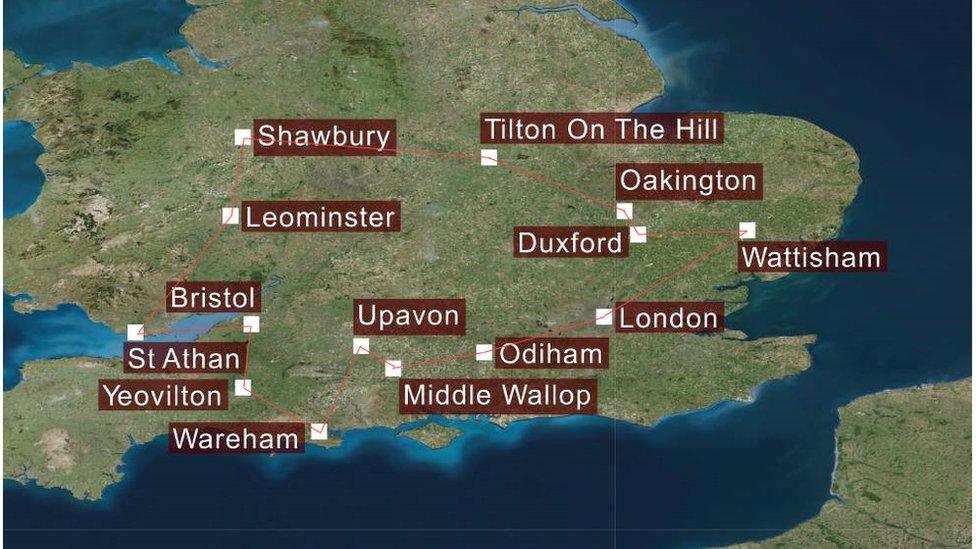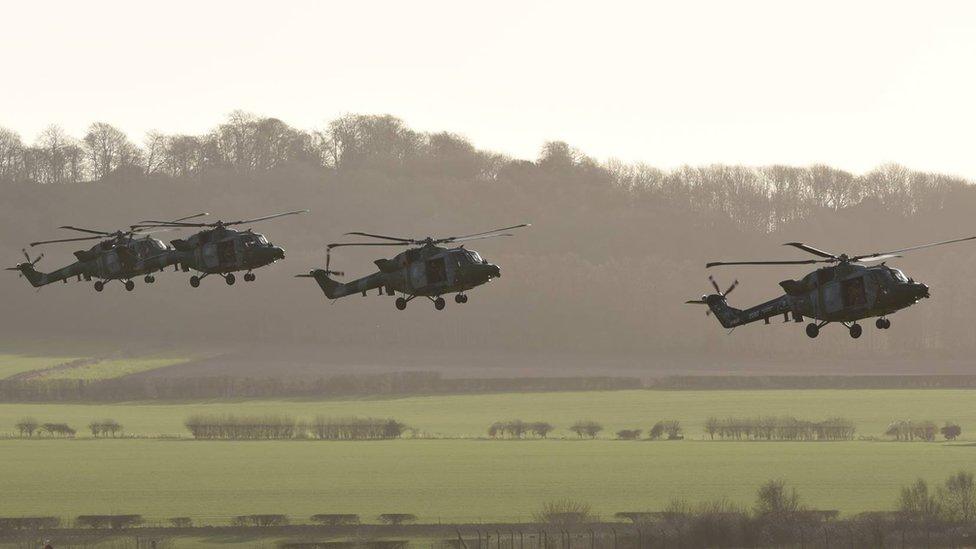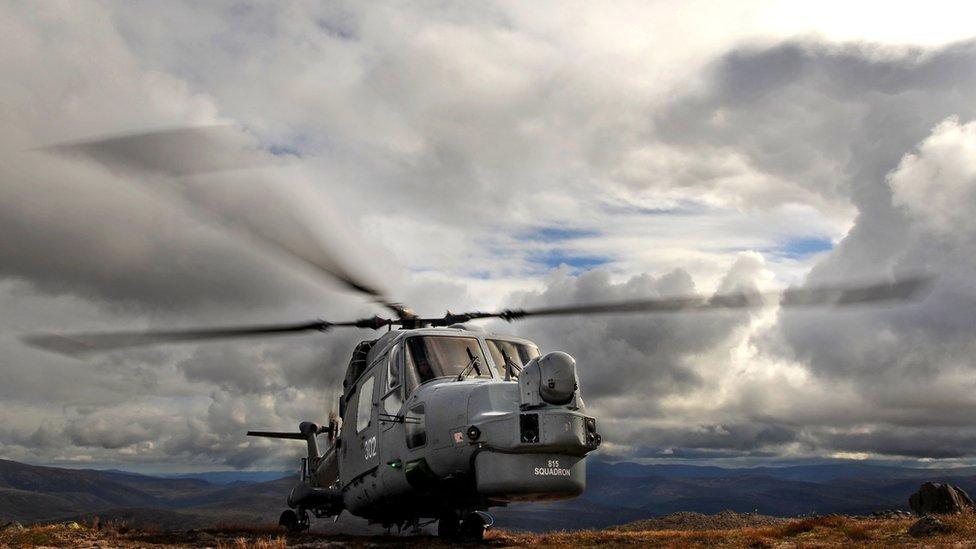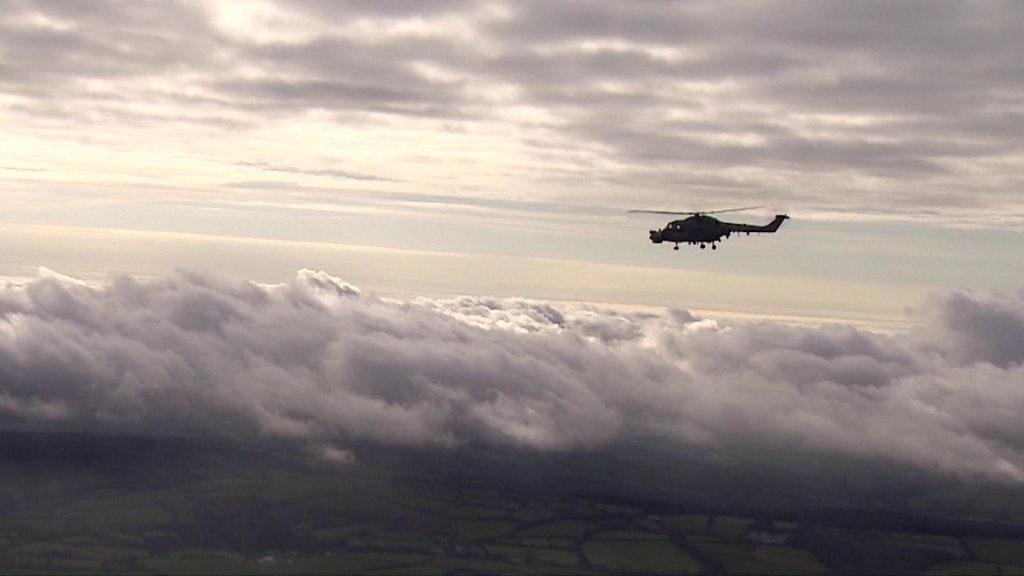Army bids farewell to Lynx helicopter with flypast tour
- Published
The flypast finished with a flight along the River Thames
The British Army has bid farewell to the Lynx helicopter with a commemorative flight.
The aircraft has been decommissioned after almost 40 years in service.
Four remaining Mk9 Lynx left from RAF Odiham in Hampshire shortly after 09:00 GMT on an aerial tour, taking in military bases and locations associated with the helicopter.
The flight culminated in a V-shaped "air procession" along the River Thames in central London shortly before 16:00.

The flypast is due to head west from RAF Odiham in Hampshire and will end in London
Commanding Officer of 657 Squadron, Maj James Peycke said the army was saying "farewell to the iconic machine".
"It is hugely emotional saying goodbye to the Lynx after six years of flying, and it carves out a big chunk of your heart."
Maj Peycke, who was flying in the lead Lynx, called the aircraft "hugely manoeuvrable".
There is "never a dull day when you are flying", he added.

Four remaining Mk9 Lynx went on an aerial tour, taking in military bases and locations associated with the helicopter
Described as a primary battlefield utility helicopter, over the decades the Lynx has also destroyed tanks, evacuated wounded personnel, gathered intelligence and provided humanitarian support.
The British-made aircraft entered service in 1978 and has been used during military deployments to Northern Ireland, Bosnia, Kuwait, Afghanistan and Sierra Leone.
It is set to be replaced within the British Army by the Wildcat, which has more powerful engines and can operate at a higher altitude.
The Lynx aircraft were led by a Chinook helicopter during their formation over the Thames in London.
The Royal Navy mounted a similar tour in March last year to say farewell to its Mark 8 Lynx before decommissioning the aircraft.
Army bids farewell to Lynx helicopter with flypast tour
- Published17 March 2017

- Published10 March 2017
